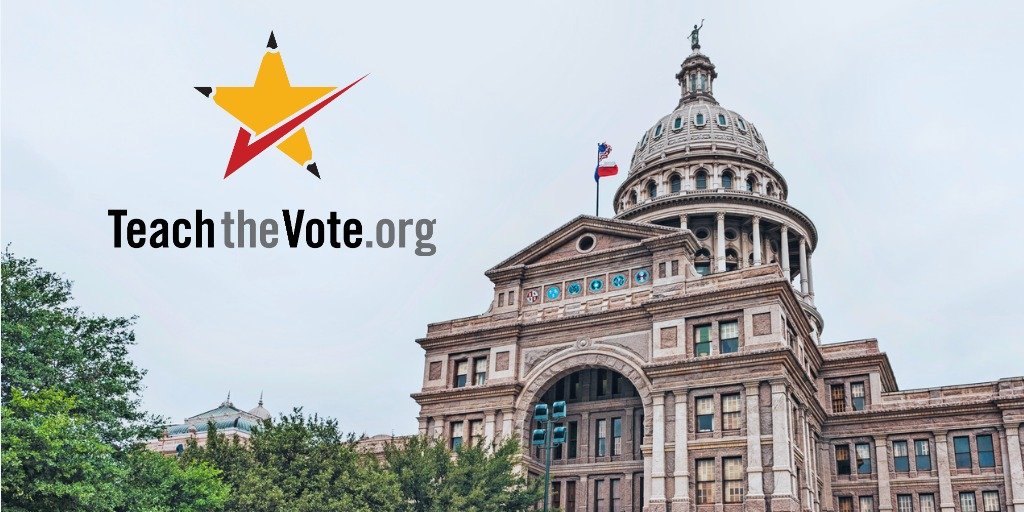Equitable services saga ends following court decision against DeVos rule

Congress | Federal COVID-19 Privatization | Vouchers
Date Posted: 9/30/2020 | Author: Andrea Chevalier

As we reported here on Teach the Vote a couple weeks ago, a federal court nullified a controversial federal rule that would have funneled additional public dollars to private schools under an "equitable services" provision of the CARES Act. With a statement that U.S. Secretary of Education Betsy DeVos will not appeal that decision, it seems as though the equitable services saga has finally come to an end. Here's the story from start to finish:
On March 27, 2020, the CARES Act was signed into law. It provided Texas public schools with federal aid meant to combat extra costs associated with COVID-19. The CARES Act requires public school districts to use a portion of their emergency funds to provide equitable services to certain private schools, following long-standing federal education law practices.
Leave it to DeVos to disregard Congressional intent and interpret the equitable services provision in the CARES Act to send an unprecedented amount of public school emergency funds to private schools. Deviating from the prior practice, DeVos issued April 30 guidance directing school districts to calculate their equitable services allocation using ALL students at ALL private non-profit schools in their bounds. The Texas Education Agency (TEA) held districts to this questionable guidance while other states chose to ignore it.
Two main points make this interpretation egregious: Number one, equitable services allocations are typically calculated based on eligible students (low-income, English learners, etc.) who live in the district's bounds but who attend a private school. Number two, CARES Act funds were 90% based on Title I formula-funding. Under DeVos's interpretation, a student who lives in a wealthy neighborhood but attends a private school in another part of town would now get the benefit of federal emergency dollars that were calculated based on low-income children. The "poor must share with the rich" is not equitable.
After much consternation from the education community, the department issued an interim final rule (IFR) on July 1 that gave three options to school districts. On the one hand, the rule gave districts an option to follow the long-standing interpretation of equitable services, which was good. However, the rule meant that the DeVos interpretation now held the effect of law, which was bad. ATPE submitted formal comments opposing the new rule in July, but the department did not change any of its practices. Meanwhile, TEA conducted new trainings to inform districts of the changes.
A slew of court cases and a final summary judgement leads us to the beginning of September. The September 4 ruling by U.S. District Court Judge Dabney L. Friedrich vacated the IFR nationwide. TEA updated its equitable services guidance the following week but cautioned districts that DeVos had 60 days to appeal the decision.
On September 25, DeVos issued a letter to all chief state school officers stating that the department would not appeal the decision. TEA held a new training this week instructing districts to revert to the original interpretation of equitable services, as intended by Congress.
 Betsy DeVos
Betsy DeVosWhile DeVos argues, "all schools and all students have borne the pandemic’s burden and need support," Congress has provided small business assistance that private schools and even some public charter schools have taken advantage of already. Should Congress wish to specifically fund private schools, they could consider a separate piece of legislation that is not tied to Title I formula-funding.
The back-and-forth over the equitable services issue this year reminds us of the power struggles that can arise at the state and federal level between elected lawmakers, agency heads appointed by a governor or the president, and the courts that provide much-needed checks and balances in our democracy. The Secretary of Education is appointed by the President of the United States and is confirmed by the U.S. Senate. Not only are there many state and federal legislative races being decided this year, but the presidential election in 2020 will shape the next four years of education policymaking at the federal level.
ATPE encourages you to make sure you are registered to vote by October 5 and research your ENTIRE ballot using resources such as the candidate profiles on Teach the Vote (for Texas House, Texas Senate, and State Board of Education races on the ballot this year) and vote411.org, where you can build and print out a sample ballot of your own. Early voting for the general election begins October 13.
CONVERSATION
RECOMMENDED FOR YOU

Congress | Federal, COVID-19, Curriculum | Instruction, Educator Compensation | Benefits, Educator Preparation | Certification, Elections, School Finance, School Safety, Testing | Accountability, Texas Legislature
08/04/2023
Teach the Vote’s Week in Review: Aug. 4, 2023
ATPE weighs in on current political climate for education in Houston Chronicle story—plus, a look at federal ed prep and special education developments.

02/20/2026
Teach the Vote’s Week in Review: Feb. 20, 2026
Early voting is underway through Friday, Feb. 27. Plus: Check out the brand-new ATPE Mobile App.

02/20/2026
ATPE’s new mobile app brings advocacy tools to your fingertips
Read Teach the Vote, contact your legislators, or donate to ATPE-PAC all on your phone using the new ATPE Mobile App.

